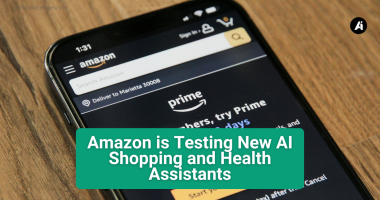Can you imagine a baby being born thanks to a robot doing all the work in the IVF lab? Well, it just happened.
For the first time ever, a baby has been born using a fully automated IVF system — powered by artificial intelligence (AI). No human hands were involved in the actual fertilization process. Sounds wild, right?
So, how does Automated AI IVF even work?
Normally, in IVF (in vitro fertilization), there’s a step called ICSI (Intracytoplasmic Sperm Injection)—where an embryologist carefully injects a single sperm directly into an egg using a microscope and some very steady hands. This has been the go-to technique since the 1990s.
But here’s the thing: even the most experienced embryologists can vary in technique, and fatigue is a real issue. IVF is delicate work, and there’s no room for error. That’s where this new system comes in.
What’s new about this AI-powered IVF?
Developed by a team from Conceivable Life Sciences in New York and Guadalajara, the system replaces the entire manual ICSI process with automation. Yep — all 23 steps. The AI handles everything from selecting the sperm to injecting it into the egg, even immobilizing the sperm with a laser.
This breakthrough was just published in Reproductive Biomedicine Online, and the first birth using the tech happened at Hope IVF Mexico.
The first AI-IVF baby story
The first baby born through this fully automated, AI-assisted IVF process is a healthy baby boy — and behind that incredible moment is a very real, very human story.
His mother, a 40-year-old woman, had been through the emotional rollercoaster of fertility treatment before. Like so many others, she had previously tried IVF and endured the heartbreak of it not working. Anyone who’s been there knows — IVF is not just physically demanding; it takes a toll emotionally and financially too. After the disappointment of her first attempt, she decided to try again — this time using donor eggs.
But what made this cycle different wasn’t just the eggs. It was the fact that, for the first time ever, every single step of the fertilisation process was done by a machine. Not just any machine — a cutting-edge, AI-powered system designed to automate the entire ICSI procedure with the kind of precision and consistency humans can’t always guarantee.
Out of five donor eggs processed by this system, four were successfully fertilized. That’s a remarkably high success rate for any IVF procedure — and even more impressive considering no human hands were involved in the sperm injection process.
Right now, it takes about 9 minutes and 56 seconds per egg. That’s a bit longer than manual ICSI, but that’s just because it’s still in the early experimental stages. According to the researchers, it’s only going to get faster and more efficient from here.
What makes this a big deal?
Dr. Jacques Cohen, one of the pioneers behind the project, said this could be a game-changer. Automating the process could make IVF more consistent, reduce pressure on embryologists, and possibly improve success rates by eliminating human error.
Even though automation is already being used in IVF—like embryo monitoring, freezing, and sperm washing, this is the first time an entire fertilization step has been done start to finish by AI and robotics.
What’s next?
Of course, more studies are needed to make sure it’s safe, effective, and scalable. But this first successful birth is a huge leap forward.
Could this mean more accessible and reliable IVF in the future? Could it eventually lower costs or expand access in places where expert embryologists are hard to find?
Those are big questions — and this baby boy might be the start of a whole new chapter in reproductive tech.





